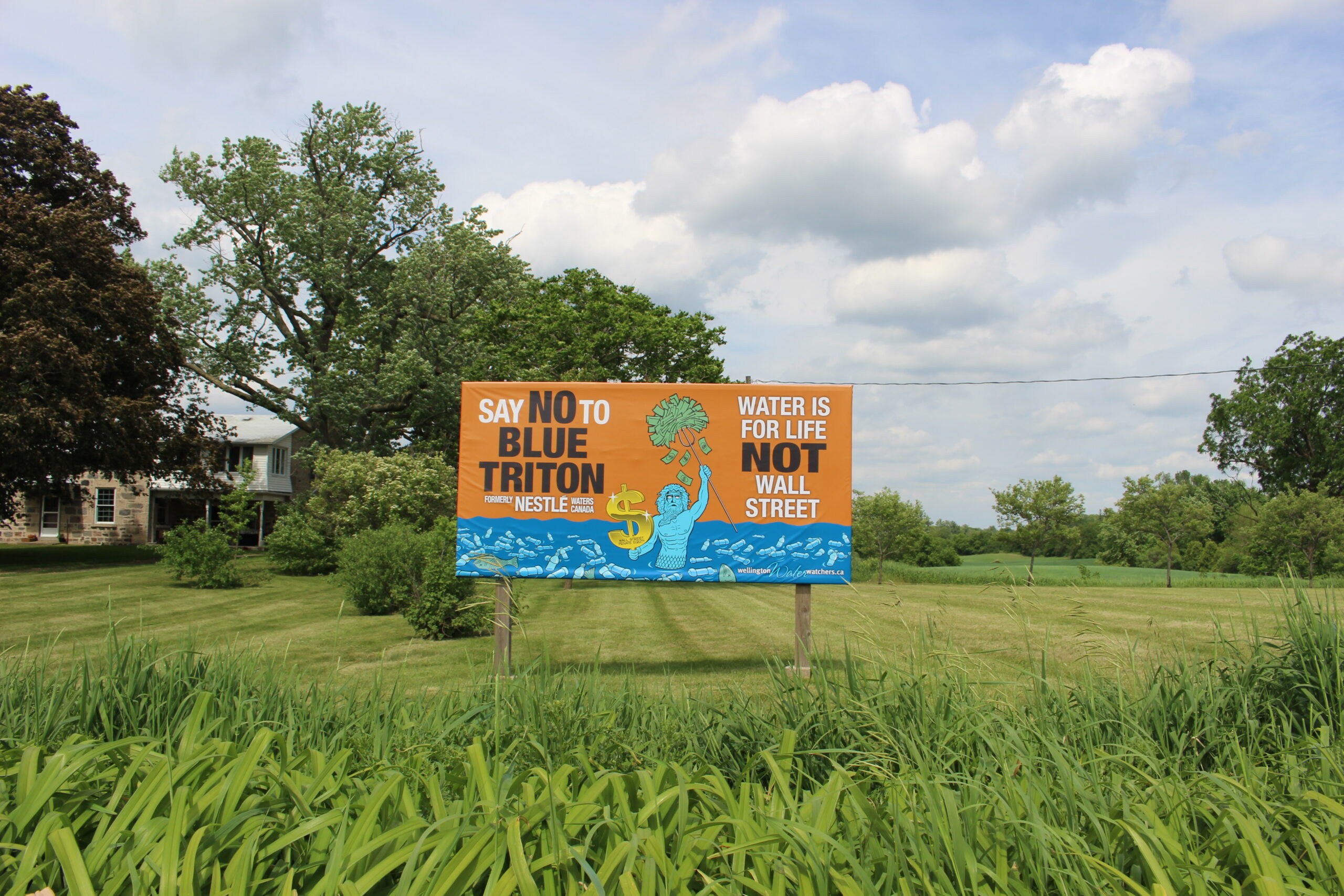
5 things to know about Winnipeg’s big sewage problem
115 billion litres, 70 years to fix, $5.5 billion in lawsuits
BlueTriton, a water bottling company formerly known as Nestlé Waters North America, is ending its operations in Ontario.
Since 2007, the U.S. based-company has operated a facility in Guelph, Ont., and two wells in the Town of Erin and Wellington County, where it collects groundwater to bottle and sell. In 2017, the former Ontario Liberal government imposed a moratorium on new permits to take water for bottling, in order to study its impacts on the environment and quantity of water available for other users. The province allowed Nestlé to continue extracting up to 4.7 million litres of water a day from the two wells. Over a week, that would fill 13 Olympic swimming pools.
In 2021, Nestlé sold its North American water divisions to venture capitalists that renamed the business BlueTriton. A day after the name change was announced, the Doug Ford government lifted a moratorium on new permits for water extraction for bottling, saying the province’s studies concluded water taking did not adversely impact the environment or other users. In lifting the moratorium, it introduced new regulations, including a need for municipalities to approve new permits to take more than 379,000 litres of water per day.
This did not, however, apply to BlueTriton as a few months later, in November 2021, the province granted BlueTriton a five-year renewal on Nestlé’s permits.
The company is leaving Ontario before its permit expires. “We have initiated a public sale process for our Guelph facility and will wind down our operations in Ontario by the end of January,” Carrie Ratner, a spokesperson for BlueTriton, told The Narwhal in an email.
Ratner did not specify the reasons behind this move.
BlueTriton, and Nestlé previously, faced significant and persistent opposition from residents in Guelph and surrounding areas, who are celebrating the company’s exit from Ontario. The company operates in the traditional territory of Six Nations of the Grand River, where water insecurity is severe, with just one aquifer to draw from, and residents often have to purchase clean drinking water due to boil advisories.


According to a 2021 statement by the Haudenosaunee Confederacy Council, the longstanding traditional leadership of Six Nations, the community did not give Nestlé or BlueTriton consent to extract water from its lands. After the sale by Nestlé, the council issued a cease-and-desist order that was ignored. (Neither the Haudenosaunee Confederacy Council or the elected government of Six Nations of the Grand River responded to The Narwhal’s request for comment by the time of publication.)
“It’s been beyond maddening,” Dawn Martin-Hill, a Six Nations member and professor of anthropology at McMaster University, told The Narwhal. “So of course, we’re thrilled.”
Martin-Hill is currently leading a water research program at the university to study the impacts of water insecurity in Indigenous communities. She has worked closely with others in Six Nations that oppose the company’s water extraction efforts.
By her research group’s calculations, BlueTriton has made half a trillion dollars in profit, none of which has been shared or reinvested with the First Nation, Martin-Hill said. Similar to a youth climate action case arguing the Ford government has breached the human right to a healthy environment, Six Nations is hoping to argue for the human right to clean water.
Martin-Hill said Six Nations youth are spearheading an effort to have ownership of BlueTriton’s wells transferred to the community, to make that water more readily available to their people. “People don’t understand how important water is,” Martin-Hill said. “It’s more important than oil.”

The company’s departure “marks a significant victory in the ongoing battle for water justice in this province,” Arlene Slocombe told The Narwhal. Slocombe is the executive director of Water Watchers, an advocacy group created in 2007 in response to Nestlé and then BlueTriton’s operations. “We didn’t envision they would leave,” she said. “It’s a testament to collective action.”
BlueTriton has offered few details of its exit plan, except to say it is “unrelated” to a recently completed merger with Primo, another water bottling company. BlueTriton’s spokesperson told The Narwhal the company will maintain its facility in Hope, B.C.
Slocombe said Water Watchers will be following the company’s departure closely. The group wants to ensure workers are supported in the company’s transition. It also wants to see ownership of the wells transferred back to Six Nations. In the long-term, the group hopes to see permits for commercial water bottling phased out entirely in Ontario and also have water be provincially declared as a human right in a legally binding framework.
“When we first started, we opposed their operations for environmental reasons, but over the years it’s become a justice issue,” Slocombe said. “A local one, but also a global one. BlueTriton is leaving Ontario but we have a responsibility to watch where they go next.”
Get the inside scoop on The Narwhal’s environment and climate reporting by signing up for our free newsletter. On a warm September evening nearly 15...
Continue reading
115 billion litres, 70 years to fix, $5.5 billion in lawsuits

Climate change, geopolitics and business opportunities power a blue economy

10 billion litres of sewage are dumped into Winnipeg’s lakes and rivers each year. Some...
